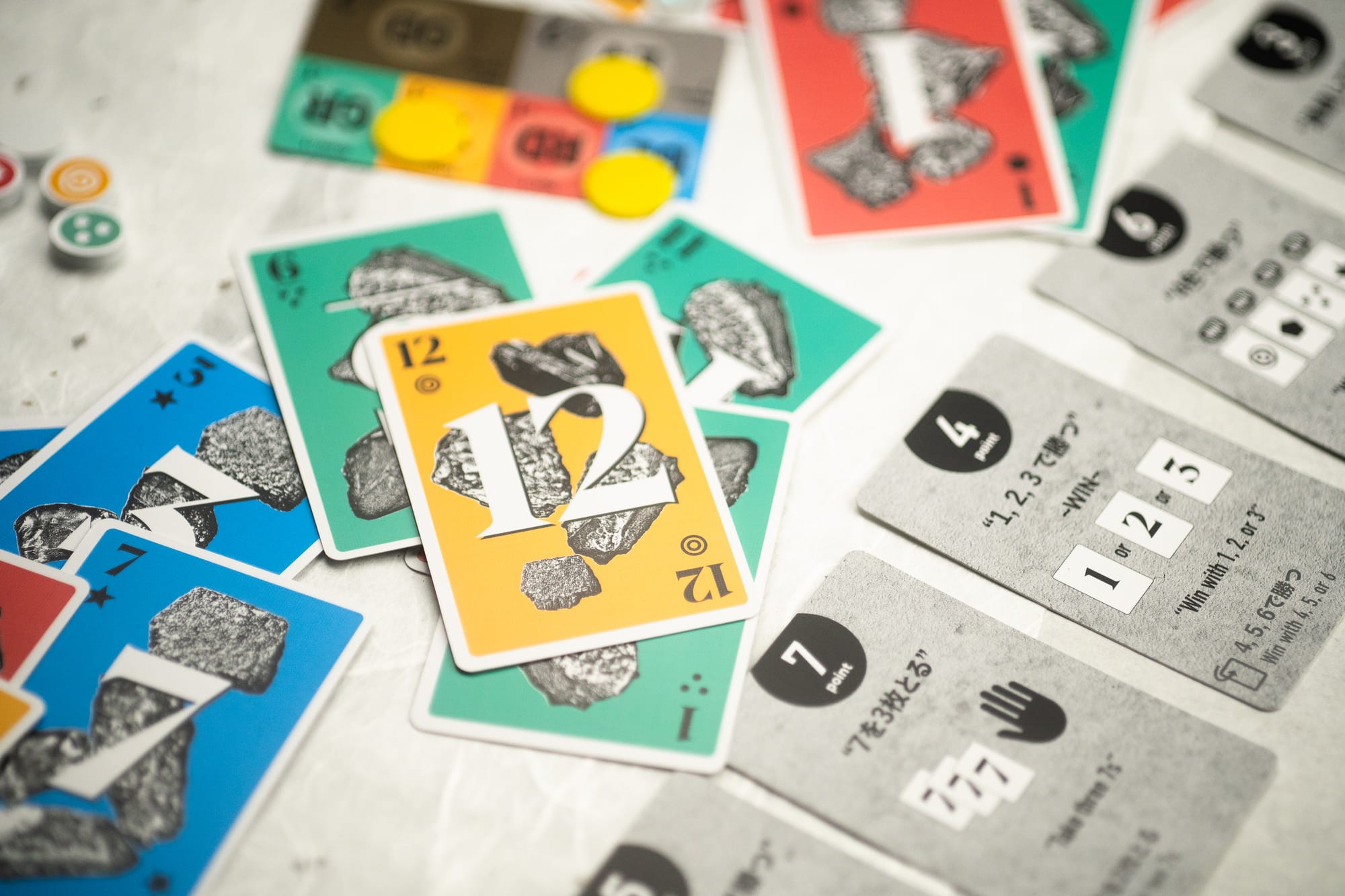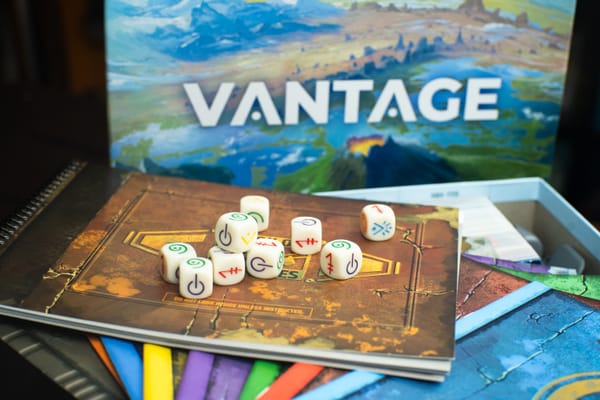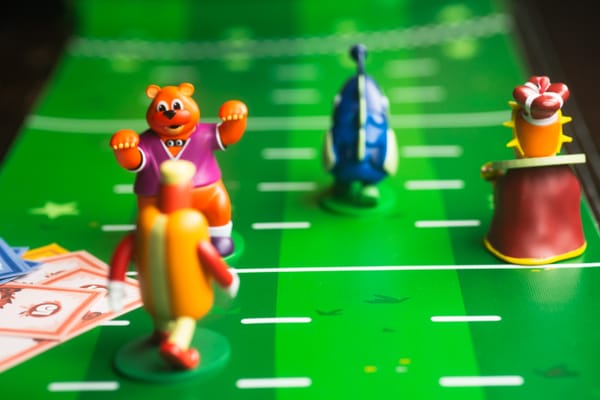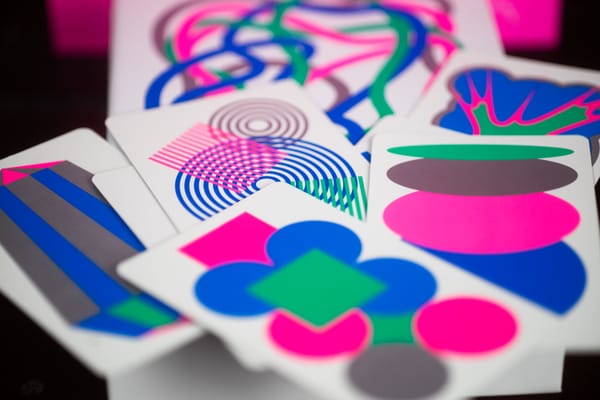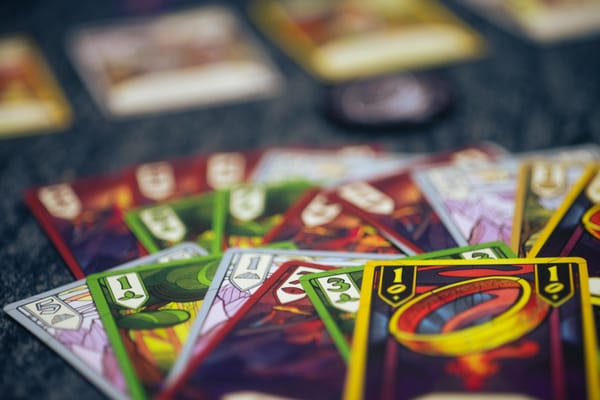What makes a great word game?
Three great word games that don’t demand a thorough reading of the dictionary
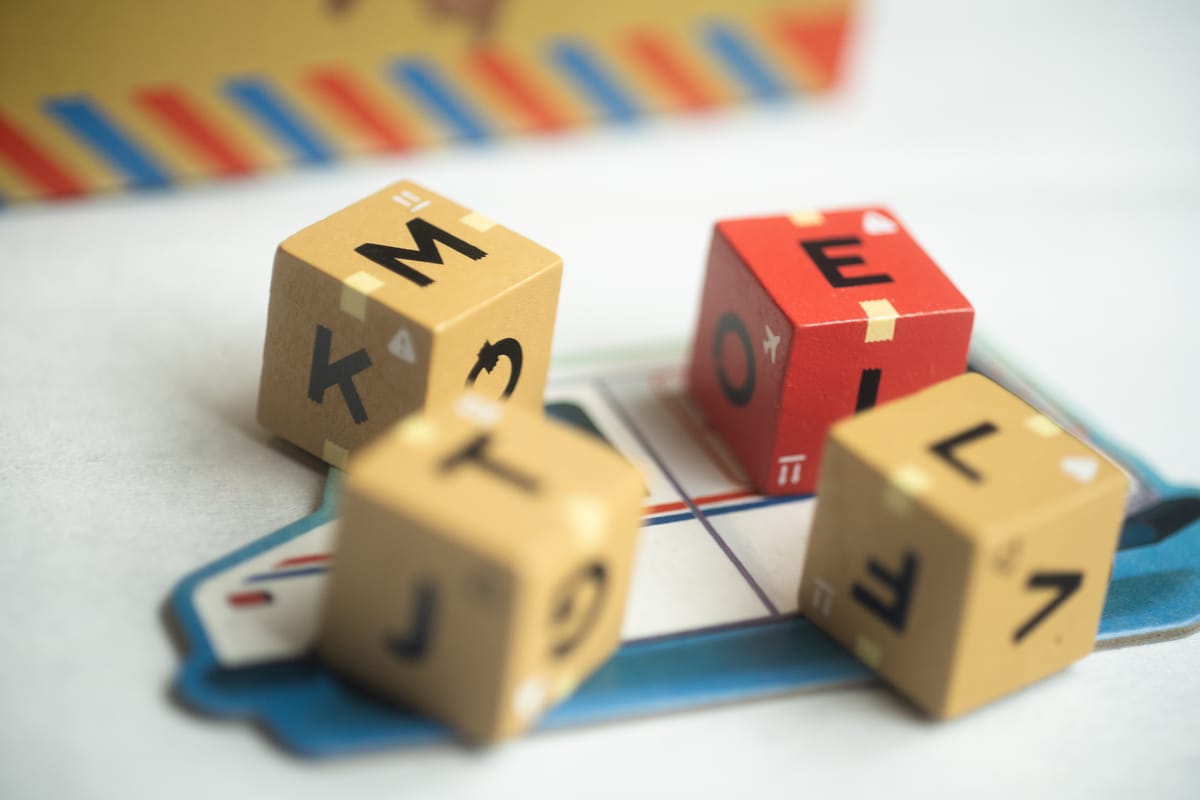
It’s been about two years since I last wrote about word games in any depth. I don’t know how much has realistically changed in that timeframe — some new games have emerged, and we’ll talk about a couple of them, but this seems like a genre of game that’s at a remarkably stable point. Before we dive too deep, what do I mean by word games? I’m focused today on games that involve you making words from some sort of resource.
Perhaps it’s the quality and dominance of Scrabble (Butts, 1948) that has kept it from being a genre with consistent growth. Maybe it’s that games in which that’s the main feature just don’t have the same appeal to the board game hobbyist cohort. (That might just be it.) We could also talk about a public anti-intellectual trend that’s been moving full-force for 50 years, if we wanted, but I think that’s a bit beyond my grasp here.
So, Scrabble. The game’s coming up on its 80th birthday soon, and for its part, it’s one of the top-ranked games with the ‘Spelling’ mechanic on Board Game Geek. (That’s not an indication, of course, that it’s a great game — it’s a popularity contest at best. I understand that, but it’s a helpful shorthand and a way of understanding broader trends.) It’s actually sitting in the fifth-place spot, behind Paperback (Fowers, 2014), Letter Jam (Skoupý, 2019), Hardback (Fowers and Beck, 2018) and Bananagrams (Nathanson, 2006). But don’t take that to mean that it’s particularly high-rated; Scrabble, with its 6.3 rating, is the 2,364th best game on BGG. (According to user rankings, obviously. But someday, I hope to have played enough games that I can definitively say something is the 2,364th best game in my collection.)
It belongs to a different generation of games, to be sure. Having been first published in the 1940s puts this game as having first hit tables just three years after World War II. It has stood the relative test of time alongside a slew of card games and abstract strategy games. But for a game with a board, that it’s still well-respected? That’s a little unusual. Yes, abstract strategy games are played on a board. See also: Chess. And Checkers. And Cosmic Encounter (Eberle, Kittredge, Norton and Olotka, 1977) doesn’t have a board at all.)
In fact, of board games of its era, few have retained any popularity and renown among gamers. The closest we really get is Acquire (Sackson, 1963) at a remarkable 356th place, while Risk (Lamorisse, 1959) is sitting at a paltry 28,182nd place in the rankings. (Is Risk still worth playing, I wonder? It has been a good 20 years since I’ve played it. We played it a ton, my friends and I, back in high school. Today? I wouldn’t dare.) There’s clearly a reason Scrabble remains well-regarded today, and there’s probably a reason it’s still played competitively.
Let’s dig deeper. Scrabble is a game in which you’re playing words from a hand of seven tiles. After each word you place, you’ll draw back up to seven tiles again. Your words go on a grid with other words, and at any intersection of letters you play, those have to be a word, too. There’s a reason aa ( is a beloved Scrabble word, and there’s a reason it was my late uncle’s favorite Scrabble word. As you play a game of Scrabble, the board becomes tightly packed with words, and you’ll need to look for ways to get your letters out there. Words like “aa,” “et,” and “za” can get you out of a bind.
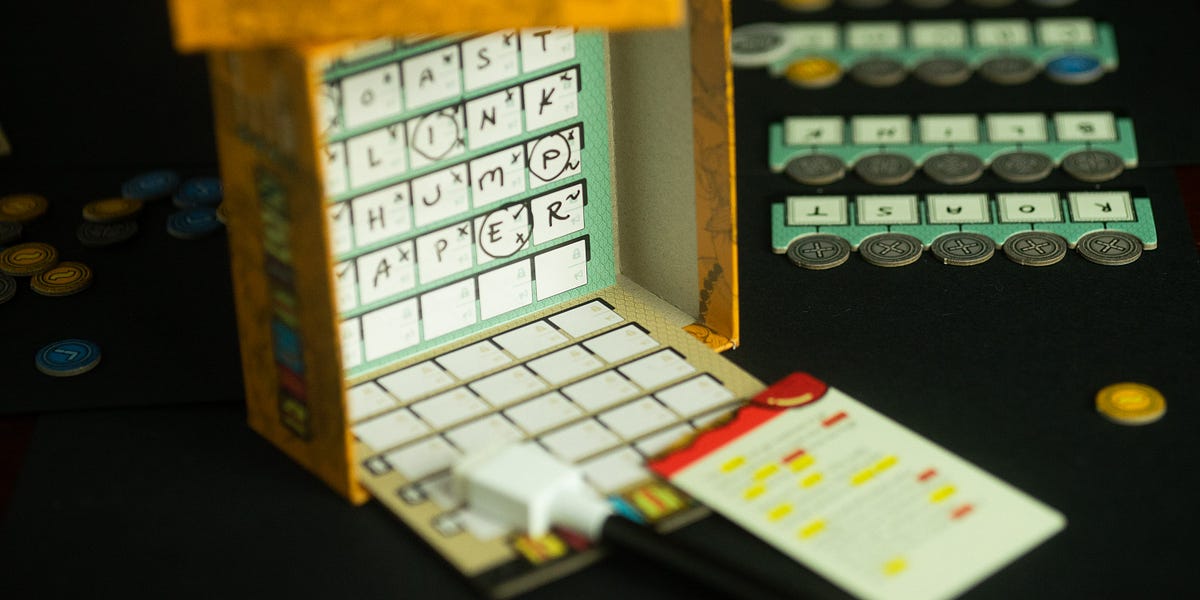
For all of Scrabble’s better qualities, there remains at least a conception of a fatal flaw, though we ought rightly question the reality of it: In the end, this is a game about knowing lots of words. Success in the game requires considerations external to the game, and there’s no getting around that fact. If you are newly learning English, Scrabble may be difficult or even impossible. If you simply don’t know a lot of words, Scrabble will demonstrate that and expose you at the table.
I’d like to focus on word games today that don’t require you to study a dictionary. I want to find games that don’t need you to have deep knowledge of two-letter words and words that start with Q without a following U. These are the word games that I’m happy to bring to the table. I’d also like to talk about a few word games that are on my list to play but just haven’t made it out, for one reason or another. Maybe one of those will be interesting to you, and you can tell me about it.
Is that all it takes to make a great word game — something that's more accessible than Scrabble? Certainly not. A great word game doesn't have to share all the same characteristics with other great word games; as I think you'll see from this list, you might have trick-taking and spelling, dice-chucking and spelling, or hidden information and spelling. Even Scrabble is about spelling, but it's also fundamentally about area control, too.
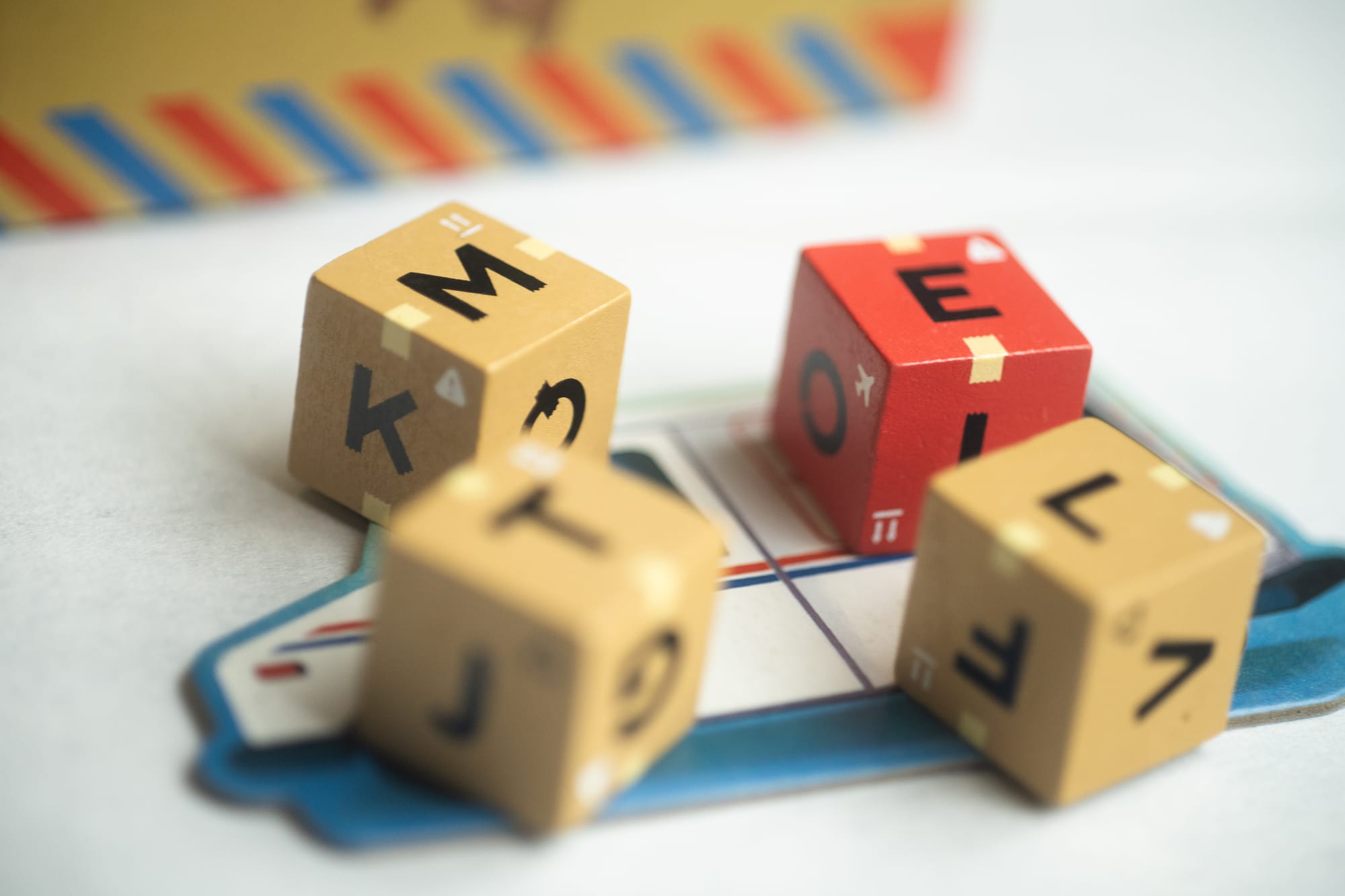
First-Class Letters
The most recent game on this list, First-Class Letters (Hayward, 2025), is not the only word game I’ve played with dice. After all, Peggy Hill’s favorite game, Boggle (Cook and Turoff, 1972) exists and remains reasonably well-regarded, just like Scrabble. But among modern spelling games, I’m not sure I’ve played another one where the letters are on the dice. Each round, you’ll roll four dice, one of which is a ‘dead-letter die’ representing a letter you can’t use in the word you spell. You get a point for each letter in your word that’s on the three remaining dice, and you get a bonus if you use all of the letters. Simple enough, right?
Designed by Peter C. Hayward, illustrated by Migy Blanco, and published by GameHead.
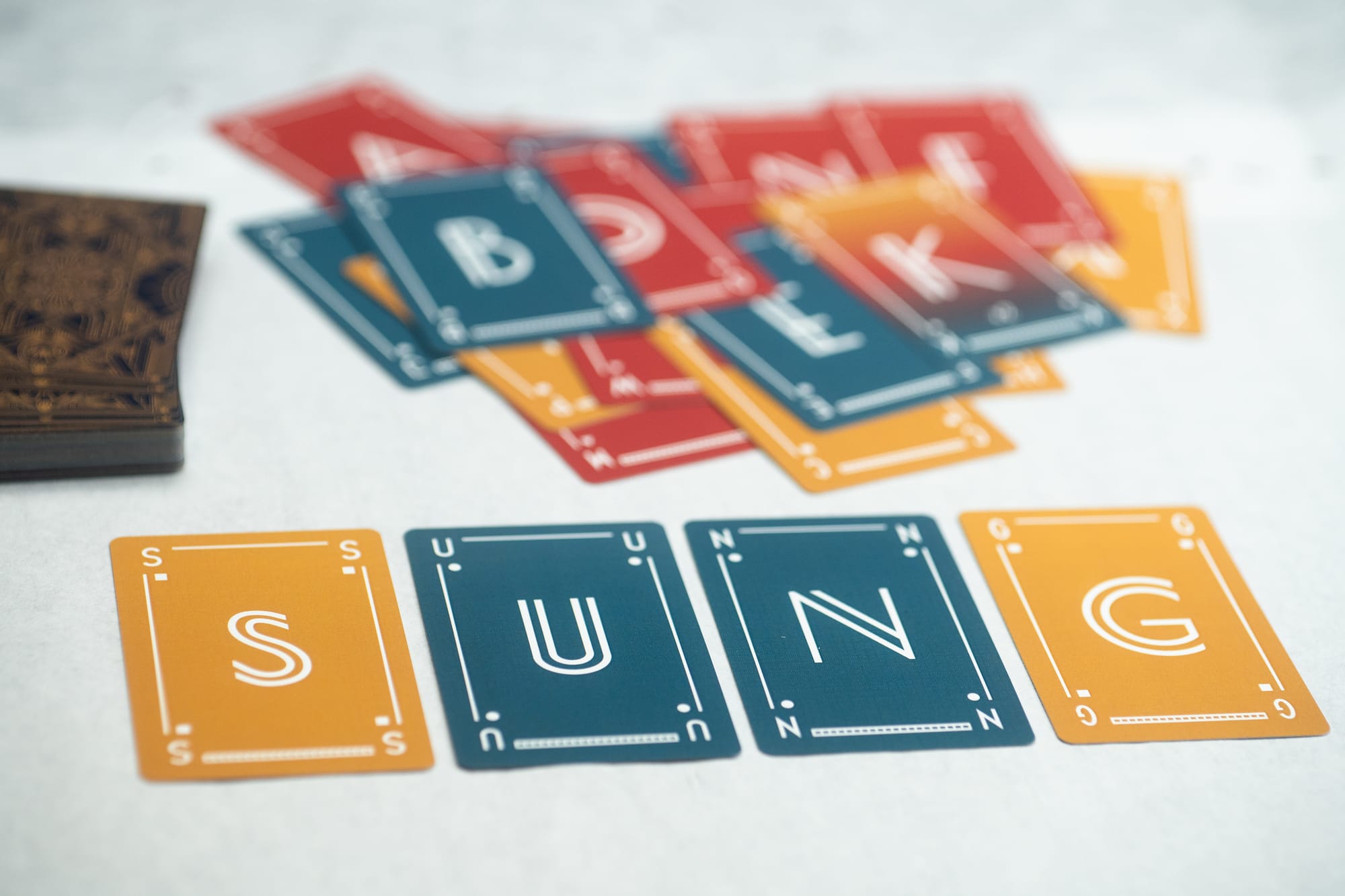
LetterTricks
If you’re looking for a game where you can show off your knowledge of big words, LetterTricks (Wray, 2021) isn’t it. This is a trick-taking game in which you’re trying to spell words with cards you gain by winning tricks. Those cards have letters rather than numbers, and you’re not going to win that many tricks. (Probably.) If you win four tricks and spell, say, RAFT, that’s four points. Some letters are worth two points, so spelling JACK is five points with a two-point J, or ZAG could be four points with a two-point Z. This might at first blush look like a game where the goal is to spell great words, but you’ll be much better rewarded if you’re focused on which tricks you’ll win and which letters you willingly play into a trick you’ll lose. In that way, it’s actually a nicely tactical trick-taker with a word-spelling element. That’s pretty cool. There’s also a cooperative mode for LetterTricks, and I don’t think you’ll find too many other cooperative word games.
Designed and self-published by Chris Wray, illustrated by Megan Russell.

Wordsy
I’ve written about Wordsy (Hova, 2017) several times by now, but it’s still one of my favorite word-spelling games. Each round, players will race to spell a single word using the eight consonants in the middle of the table, which are worth points based on the column they’re in. Your words can include other letters, but you only score points for the letters from the selection. The first player to write a word each round flips a sand timer, giving each other player 30 seconds to write a word. It’s a simple implementation of a spelling game, but it works really well. Sure, some players might be able to come up with a word with a slew of the letters available, earning a bunch of points, but will they be able to do it if you score a simple-but-valuable word faster? There’s a nice balance there. I’m just really glad this game has a new publisher, because it deserves recognition — and for new players to have a chance to play it.
Designed by Gil Hova, illustrated by Snow Conrad in the most recent edition, and published by Allplay.
Two more word-spelling games I need to play
Typewriter (Fowers, 2024) has sat on my shelf for too long, especially because I’ve loved several of designer Tim Fowers’ other games. Now Boarding (2018) and Burgle Bros (2015) are two of my favorite cooperative games, and he penned the deck-building word-spelling games Paperback (2014) and Hardback (with Jeff Beck, 2018). His Paperback Adventures (with Skye Larsen, 2022) is a tremendous solo deck-builder that feels a lot like Slay the Spire (Dworetsky, Giovannetti, and Yano, 2024) before it was adapted into a top-rated board game.
Typewriter takes Fowers back into the word-spelling sphere, and the letters are all on little round tiles that look like old-timey typewriter keys. (I’d prefer a typewriter with square keys, I think. That’s neither here nor there.) Whenever you spell a word with your tiles, you’ll flip them all over to reveal different letters. Cool idea. Now I’ve just got to play.
Designed by Tim Fowers, illustrated by Ryan Goldsberry, and published by Fowers Games.
A Message from the Stars (Simpson, 2024) is themed around making contact with aliens, and if that’s not a theme I can get behind, I don’t know what is. This is a cooperative team game, and both teams have information the other does not. It’s built on deduction, and I think that’s just really cool. It’s sitting waiting for me, too. Reports indicate it’s actually great at two players, so maybe I’ll get this one played sooner rather than later. Designed by Clarence Simpson, illustrated by Léonard Dupond, and published by Allplay.
Do you play word games? Spelling games? I’d love to hear about your favorites. Leave a comment if you’re so inclined, or send me a note on Bluesky or Instagram.
Thanks for joining me here at Don’t Eat the Meeples once again — I appreciate your continued readership quite a lot. I’m not sure what’s coming next week, but maybe we’ll dip our toes back into great roll-and-write games — I’ve been thinking it’s maybe time to start compiling some lists of my favorite games in different genres, and that seems like as good a place to start as any.



